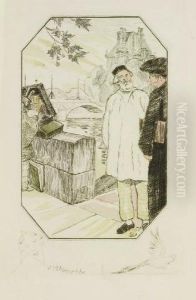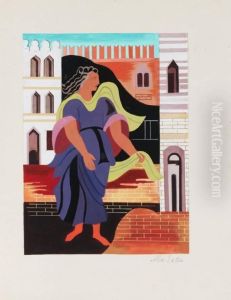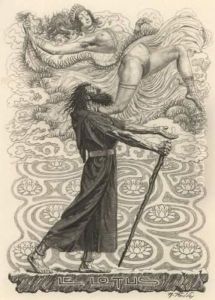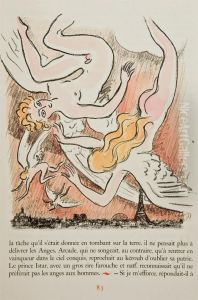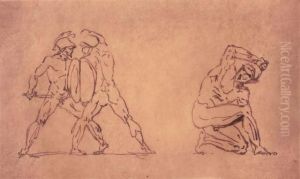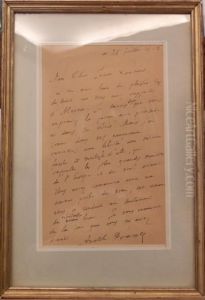Anatole France Paintings
Anatole France, born François-Anatole Thibault on April 16, 1844, was a distinguished French poet, journalist, and novelist, with a career that reflected an era of significant cultural and social evolution in France. His works are known for their classical simplicity, irony, and skepticism, which mirrored his own complex views on life.
France was born in Paris to a bookseller father, which meant that he was exposed to literature and the arts from an early age. He studied at the Collège Stanislas in Paris and later worked at his father's bookstore, where he became familiar with many writers and intellectuals of the time. This environment undoubtedly influenced his aspirations and helped shape his literary sensibilities.
His first published work, 'Poèmes dorés' (Golden Poems), came out in 1873, followed by 'Les Noces corinthiennes' (The Corinthian Wedding) in 1876. France's early works were marked by a certain romanticism, but he soon moved towards a more skeptical and ironical style, which became his trademark.
In 1881, France's novel 'Le Crime de Sylvestre Bonnard' (The Crime of Sylvestre Bonnard) won him a prize from the French Academy. This recognition helped establish his reputation as a significant literary figure. His subsequent novels, including 'Thaïs' (1890), 'L'Île des Pingouins' (Penguin Island) (1908), and 'La Révolte des anges' (The Revolt of the Angels) (1914), showcased his ability to combine deep insight into human nature with a critique of social norms and institutions.
Anatole France was also noted for his involvement in political and social issues. He supported Alfred Dreyfus during the infamous Dreyfus Affair, a political scandal that divided France from the late 1890s until its resolution in 1906. This affair revolved around the wrongful conviction of Dreyfus, a Jewish French army officer, for treason. France's commitment to justice and his stance against anti-Semitism were apparent in his writings and public statements.
In 1921, France was awarded the Nobel Prize in Literature in recognition of his brilliant literary achievements, characterized by a nobility in style, a profound human sympathy, grace, and a true Gallic temperament. This accolade was a testament to the impact of his work on both a national and international scale.
Anatole France passed away on October 12, 1924, in Tours, France. His legacy includes a vast array of literary works that continue to be read and studied for their artistic quality and their insightful commentary on society and the human condition. France's influence extends beyond literature; he is remembered as a symbol of the intellectual freedom and humanist values that marked the turn of the 20th century in Europe.
